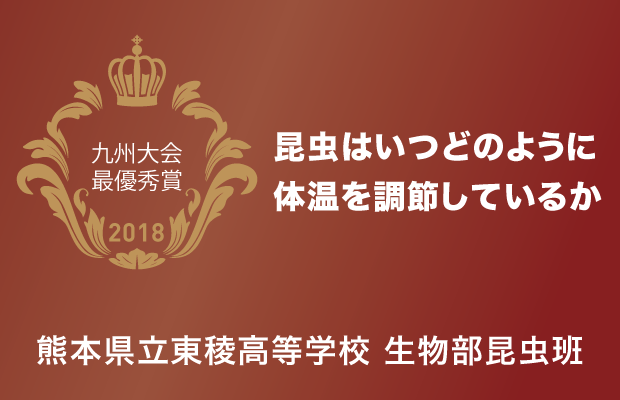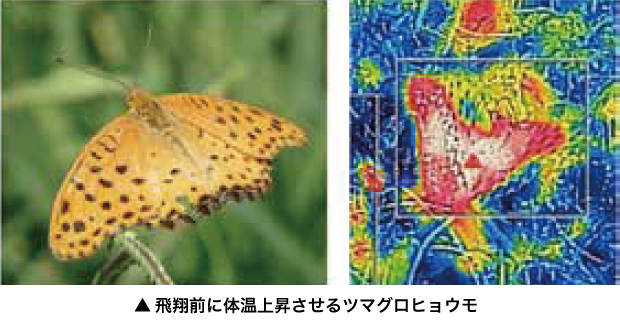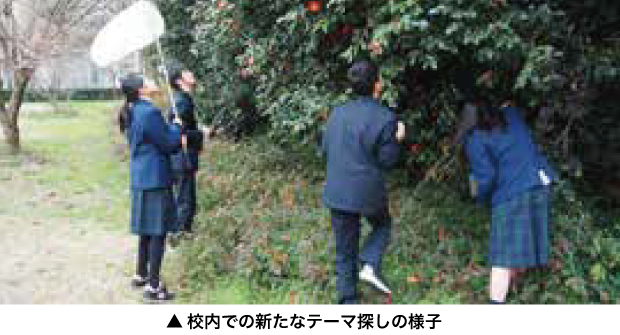- Kyushu Convention
- Information for Teachers
How and When Do Insects Regulate Their Body Temperature / Insect Team, Biology Department, Kumamoto Prefectural Toryo High School
2019.01.10
Science Castle 2018 Grand Prize Winning Teams
Grand Prize, Kyushu Competition
Kumamoto Prefectural Toryo High School, Biology Club, Insect Team
Presenters: Sakura Sato, Kento Goto, Airi Takeda, Nonoka Ogi, Kyouan Ueno, Takumi Arakawa, Haruna Nagamoto, Aimi Higashida, Mineyu Sakamoto
Faculty Advisor: Dr. Seigiri Tabata
Insect Body Temperature" research evolving with guidance that students find and draw enthusiasm for research.
The winner of the Grand Prize in the Kyushu competition was the "Insects," which many people would consider to be a metamorphic animal, but which can be adapted to the occasion and the situation.The team from Kumamoto Prefectural Toryo High School made the interesting discovery that there are things that raise body temperature and use different methods to regulate it.The main reason for this research, which has been carried out over the past eight years, is the teacher's unique ability to keep the students' interest.There was a teaching style.
Literature review to identify the real wonders
If you are a teacher supervising research activities, one of the biggest headaches you must face is finding a theme for your research. I let the students find the theme while letting them play inside and outside the school. I let them explore the school and think about what they might find as a research topic, even if it is something that casually catches their eye, such as an aphid on a window sill," says Tabata. He also observes his students as they play, trying to get a sense of their characteristics, such as what each student is interested in. However, just finding something interesting is not enough to make it a research topic. When he finds something that interests him, he first observes it closely, and then does a literature search. They are asked to conduct thorough research on their interests and questions using the Internet. In many cases, the cause or reason is already known, so there are few subjects that actually become research themes. The rest of the time," says Tabata with amusement, "I have to answer their questions and make them interesting. But because it is something that the students themselves are interested in, they persevere in their research. And when they find a wonder that has not really been investigated, the research finally begins. Once the research has begun, Dr. Tabata's job is exclusively to "ask questions," telling them what they don't understand or what they wonder about and getting them to think about it. His idea is to let the students think about the research they found on their own.
Research know-how passed on from student to student
The insect theme will enter its ninth year next year. Although new themes are not created every year, and some themes continue to be created, the importance of the literature review remains the same. However, there are advantages that come from continuing research, according to Dr. Tabata. For the first few years of research, he and his students worked together on literature searches, but as they continued, knowledge of the field and search know-how gradually began to be shared between the older and younger students, and they were able to conduct research without guidance. The school is a big place, so there are a lot of insects and other living creatures here. I let them observe their surroundings and do research in a relaxed manner," says Ms. Tabata happily. We look forward to seeing what discoveries will emerge from the wonders the students find around them and the excellent support provided by their teachers.


